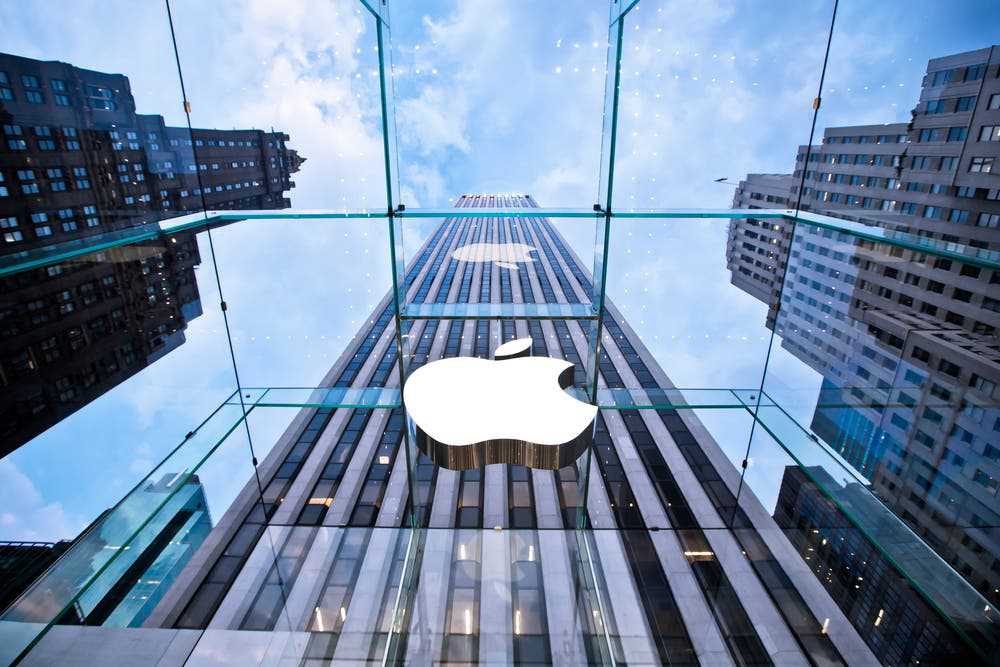Apple Sees A Decline In Fiscal Fourth Quarter Revenue Due To Supply Chain Challenges

Tech giant Apple has reported results for its fiscal fourth quarter which fell behind Wall Street expectations. Apple’s Chief Executive Officer Tim Cook blamed the underperformance on the greater-than-expected supply-chain disruptions which hindered the production of iPhones, iPads, and Macs.
“We had a very strong performance despite larger than expected supply constraints, which we estimate to be around $6 billion. The supply constraints were driven by the industry-wide chip shortages that have been talked about a lot, and COVID-related manufacturing disruptions in Southeast Asia,” Tim Cook said.
The company’s overall revenue however increased by 29 percent and each of its product categories grew on an annual basis. Apple’s revenue was $83.4 billion versus $84.85 billion estimated, up 29 percent year-over-year. The company’s iPhone revenue was $38.87 billion versus $41.51 billion estimated, up 47 percent year-over-year. Revenue for iPad was $8.25 billion versus $7.23 billion estimated, up 21.4 percent year-over-year. The gross margin was 42.2 percent versus 42.0 percent estimated.
Apple’s Macs did not increase impressively, growing by only 1.6 percent annually, but the quarter did not include sales of new MacBook Pro models that were announced in October. Apple’s iPads grew 21 percent year-over-year, although they were supply-constrained. Apple’s Other Products category, which includes Apple Watch and AirPods models, grew 11 percent.
Aside from the sales of its products, Apple experienced very strong growth in its services business, which includes sales from the App Store, music and video subscription services, advertising, extended warranties, and licensing. Apple’s services grew 26 percent annually, which Tim Cook said was higher than what the company expected. Tim Cook said that Apple has 745 million paid subscriptions, which not only includes first-party services like Apple Music but also subscriptions through Apple’s App Store. “That’s up 160 million year on year, which is up five times in five years. So it’s been quite the growth cycle,” Cook said.
Apple warned that the current quarter will bring increased supply challenges, but also said that the company was expected to experience “solid year-over-year revenue growth” in the December quarter. According to Apple, the December quarter will be the largest in terms of revenue in its history. The anticipation of strong sales growth implies that Apple is significantly experiencing more demand for its new iPhone 13 models than it can supply. Its fourth-quarter only included a few days of iPhone 13 sales as it ended on the 25th of September.
Apple’s Chief Financial Officer, Luca Maestri, said that iPad sales would decline year-over-year in the December quarter due to supply constraints, but that other product categories would grow. According to Chief Executive Tim Cook, the supply issues were with chips on “legacy nodes,” or older chips, instead of the technologically advanced processors at the core of Apple’s devices.
This quarter marks the first time since April 2016 that Apple has failed to surpass revenue expectations, and it is the first time since May 2017 that Apple’s revenues have fallen behind estimates, according to Refinitiv data. Following the results announcement, Apple shares fell nearly 5 percent in after-hours trading
Previous Story
- Apple tops list of world's best global brands...
- Google Pixel 6 And Pixel 6 Pro Ready...
- Thirteen things you need to know about Apple's...
- Smartphone Maker And Apple Supplier Foxconn, Joins The...
- Apple launches new MacBook Pros with M1 Pro...
- I switched to the iPhone 13 Mini. Here...
- Google's Pixel 6 looks like it'll actually be...
- Apple fires one more employee who urged workers...